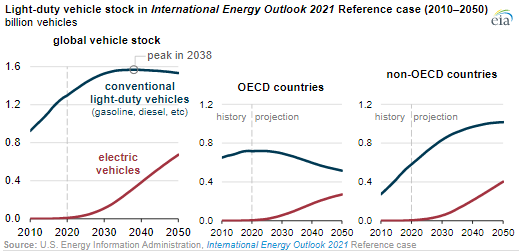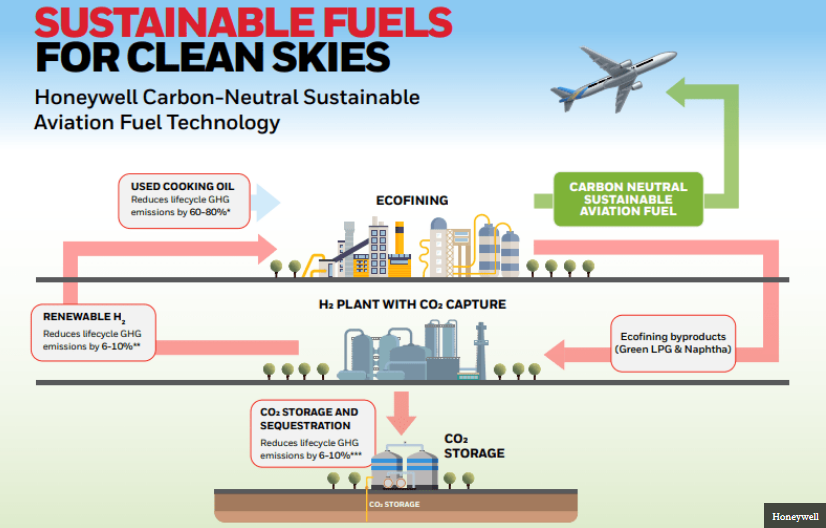In our ESG and Climate report tomorrow, we will focus on SAF from a carbon intensity perspective. The Colonial pipeline initiative was inevitable given the demand for jet fuel at the East Coast airports. Still, we would not expect much volume to move in the near term for several reasons. First, there is not that much to move, and second, California can still pay more because of the LCFS credit. The Biden administration is planning to introduce a broad SAF credit which would help encourage use outside California, but this would also need to stimulate production as the volumes are still small and much smaller than the airlines would want – even the projection of volumes by bodies like the IEA fall well short of potential airline demand by 2030 and 2040. This is an investable theme, in our view, and we will discuss it in more detail tomorrow.
Demand And Infrastructure For SAF Is Likely Well Ahead Of Supply
Apr 19, 2022 1:34:16 PM / by Graham Copley posted in ESG, Climate Change, Sustainability, IEA, renewable energy, EVs, materials, sustainable aviation fuel, renewable fuels, fuel, material shortages, carbon intensity, battery, nickel, SAF, airlines
Gevo: Ticking All The Boxes To Be A Sustainable Fuel Provider
Oct 26, 2021 12:48:37 PM / by Graham Copley posted in ESG, Sustainability, CO2, Carbon, Gevo, Chevron, gasoline, sustainable aviation fuel, renewable fuels, Sustainable Fuel, Axens, ADM
Gevo is racking up the agreements to produce sustainable fuels, announcing deals with Chevron, Axens, and now ADM since September. Our view on the need for sustainable aviation fuel is that everyone building will likely be capital constrained relative to the potential demand – this is also true for sustainable diesel and gasoline, which is relevant given that the EIA sees the conventional light vehicle stock peaking globally as late as 2038 (this is not inconsistent with other estimates we have seen) see chart below.
Fly Me To The Moon - Sustainably Please...
Oct 22, 2021 1:18:10 PM / by Graham Copley posted in ESG, Sustainability, CO2, climate, waste oil, vegetable oil, EVs, aviation fuel, gasoline, sustainable aviation fuel, renewable diesel
We have spent a lot of time in our ESG and Climate work talking about the huge impending challenge of producing enough sustainable aviation fuel to meet airlines desired needs for 2030 and beyond and we highlighted a Ryanair release yesterday that suggested that the company would struggle to meet its 12.5% goal by 2030. The Honeywell schematic in the exhibit below is one of many different processes that are being considered to meet both the demand for sustainable aviation fuel and renewable diesel and gasoline demand. With gasoline more likely to be replaced with increased numbers of EVs over time, we believe that the sustainable fuel focus will switch to aviation as the main priority, and we will need every technology that we can get to meet the volume needs. Waste oil and vegetable oil, with carbon capture around the refining process, is one route, fermentation-based processes are another, and waste to oil is a third, although we remain skeptical about the reliability and economics around a waste gasification-based approach.




